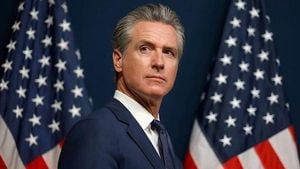Finance Minister Nirmala Sitharaman presented the Union Budget 2025-26 on February 1, outlining a growth-centric strategy aiming at the larger goal of 'Viksit Bharat'. The budget reaffirms the government’s commitment to boosting domestic consumption and stimulating the economy through well-planned fiscal measures. With the middle class being one of the beneficiaries of the proposed changes, the budget sets forth policies to invigorate both personal incomes and consumer spending.
A key highlight was the increase of the income tax exemption limit to ₹12 lakh, directly catering to the disposable income of middle-class households. This pivotal move not only aims to spur consumption but also conveys the broader message of the benefits arising from a larger tax base coupled with improved tax compliance. Such developments could pave the way for lower taxes for all, creating room for growth and long-term stability, as the government displays proactive fiscal management.
The budget also prioritizes the fast-growing micro, small, and medium enterprises (MSMEs) sector, which plays a significant role in India’s economic fabric. By enhancing credit guarantee covers and raising investment and turnover limits, the government is ensuring continuity and support for MSMEs, thereby strengthening the country's economic backbone. This commitment to domestic consumption forms part of a thoughtful strategy to navigate the challenges posed by global economic fluctuations.
From a fiscal perspective, the government has set a revised fiscal deficit target at 4.8% of GDP for 2024-25, with aspirations of reducing it to 4.4% the following year. This focus on fiscal consolidation signals the government's initiative to keep inflation manageable, ensuring gains from tax savings aren't offset by rising prices.
One of the fundamental aspects outlined was the record capital expenditure allocation totaling ₹11.2 lakh crore. Such substantial investments are expected to provide significant impetus to India’s infrastructure development and catalyze private-sector participation. Complementing this, the announcement of ₹1.5 lakh crore in 50-year interest-free loans to states underlines the government’s commitment to promoting infrastructure projects across the nation, laying the foundations for sustained economic growth.
Highlighting its commitment to sustainable energy practices, the budget proposed the establishment of a dedicated Nuclear Energy Mission, allocating ₹20,000 crore for research and development of small modular reactors. This commitment reflects the government’s aim to not only diversify energy sources but also to invest conservatively in viable clean energy pathways. The removal of customs duties on battery manufacturing components, alongside cobalt and lithium-ion battery waste, aims to supercharge the electric vehicle sector. These policies intend to promote self-reliance and sustainability within India's energy ecosystem.
Recognizing the importance of human capital, the budget places significant emphasis on skill development initiatives. Plans include the establishment of five National Centres of Excellence for skilling, coupled with global partnerships to cultivate expertise. These efforts are strategically aligned with the governmental initiative “Make for India, Make for the World”, addressing the necessity for a workforce equipped to meet the demands of the contemporary global economy.
Expanding capacities at Indian Institutes of Technology and creating a Centre of Excellence dedicated to Artificial Intelligence mark another progressive stride toward elevational quality and competitiveness. These efforts showcase the government’s proactive approach to align education and workforce training with the rapidly advancing technological terrain.
With these initiatives, the Union Budget 2025-26 not only responds to contemporary economic challenges but doubles down on the extensive potential India possesses. The focus on long-term imperatives, including vast public investment avenues and sustainable practices, aims to position the economy as one equipped to tackle the future effectively.



